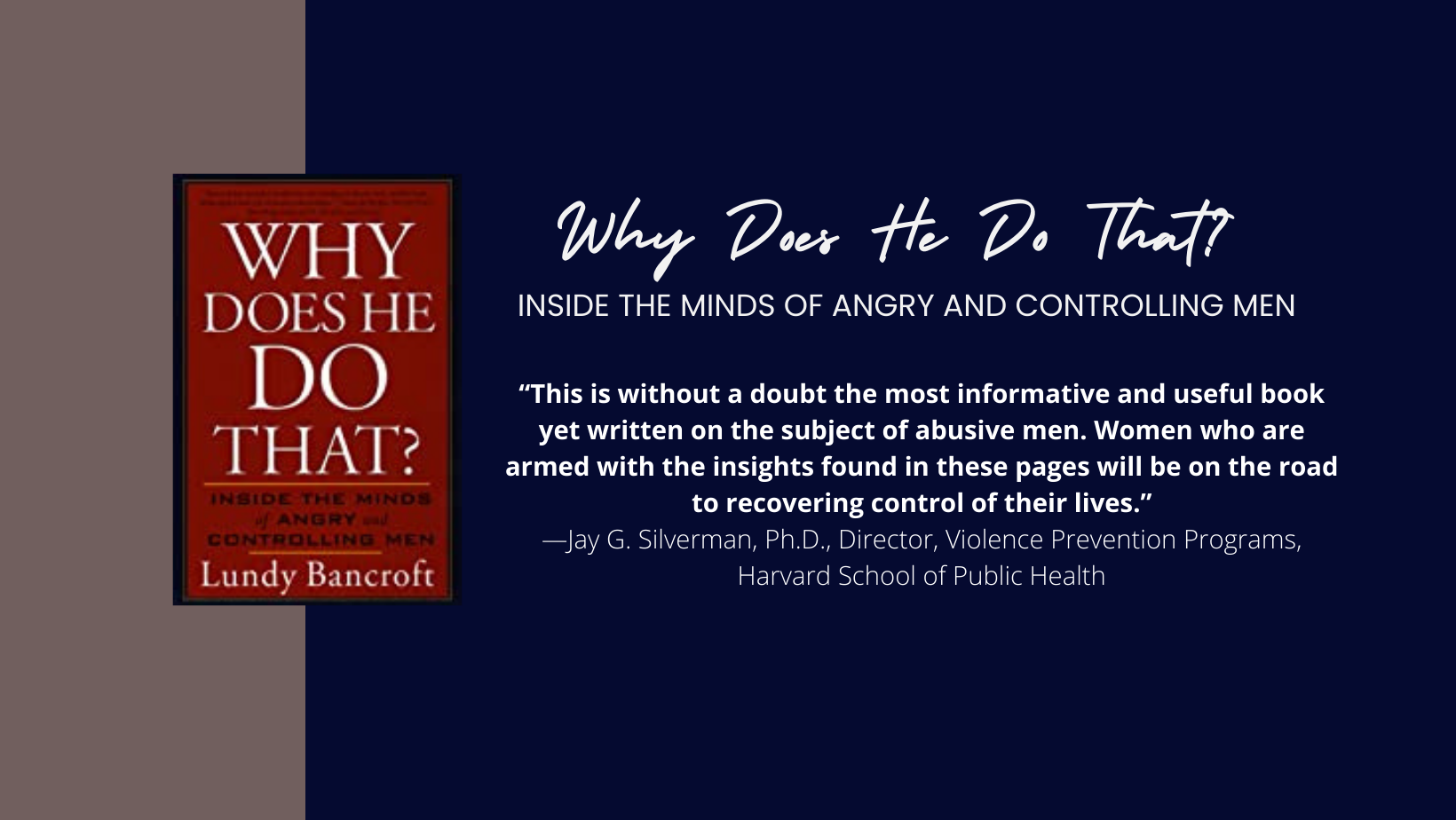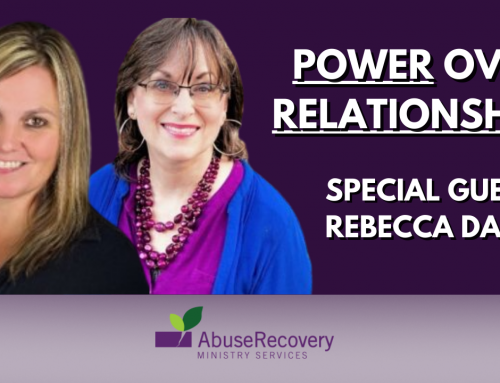Perhaps you have read one of the books we use in our leadership training called “Why Does He Do That” by Lundy Bancroft. If so, you know that he presents ideas throughout the books that might appear to some to be myths. But in truth, they are based on his multitude years of experience in working with abusers.
Here’s a good one:
“An abuser is a human being, not an evil monster.
But he has a profoundly complex and destructive problem that should not be underestimated.”
In one of our assignments, a student chose this particular phrase to agree or disagree with. I felt that her answers were particularily insightful. With her permission, I’m sharing them with you today.
Twenty years ago, I didn’t agree with the first half of Lundy’s statement, “An abuser is a human being, not an evil monster.” Having witnessed firsthand the actions of an abuser and having little knowledge about what was happening, the only word I could use to describe him was “monster.” I agreed with the second portion of Lundy’s statement, “But he has a profoundly complex and destructive problem that should not be underestimated.” Understanding this to mean that I should be empathetic for him and simultaneously live in fear of him.
After the Lord’s healing took place in my heart and life, my perspective shifted. Now, I can fully agree with Lundy’s statement for the following reasons:
How God Sees Things
Romans 3:23 states, “for all have sinned and fall short of the glory of God.” God does not differentiate between the hidden sins of the heart and the outright sins of an abuser. He looks at all of us as in need of Him. He loves all of us equally. For this reason, I believe that the Lord wants us to retain our empathy for the abuser. BUT with very clear and healthy boundaries.
It Is a Sin Problem
Proverbs 5:22 states, “The iniquities of the wicked ensnare him, and he is held fast in the cords of sin.” An abuser’s “profoundly complex and destructive problem” boils down to a sin problem. The Bible commands us in Ephesians 4:26-27, “Be angry and do not sin. Do not let the sun go down on your anger and give no opportunity to the devil.” Choosing to be angry to the point of abuse allows the devil to rule and reign over one’s heart and life. When the devil is in control, he wreaks havoc within the home.
It Is a Choice Not to Be Taken Lightly
Joshua 24:15 states, “Choose you this day whom ye will serve.” Abuse is a choice, just like the choice to serve and honor the Lord. When an abuser chooses to hurt and harm, it shouldn’t be underestimated. Things often go from cold to hot at a moment’s notice, leaving holes in walls, bruises on a body, and/or emotional damage needing years to repair.
Re-reading Lundy’s statement with these things in mind, I see things in a new light.







Leave A Comment